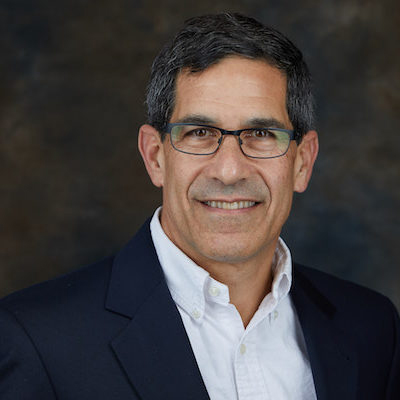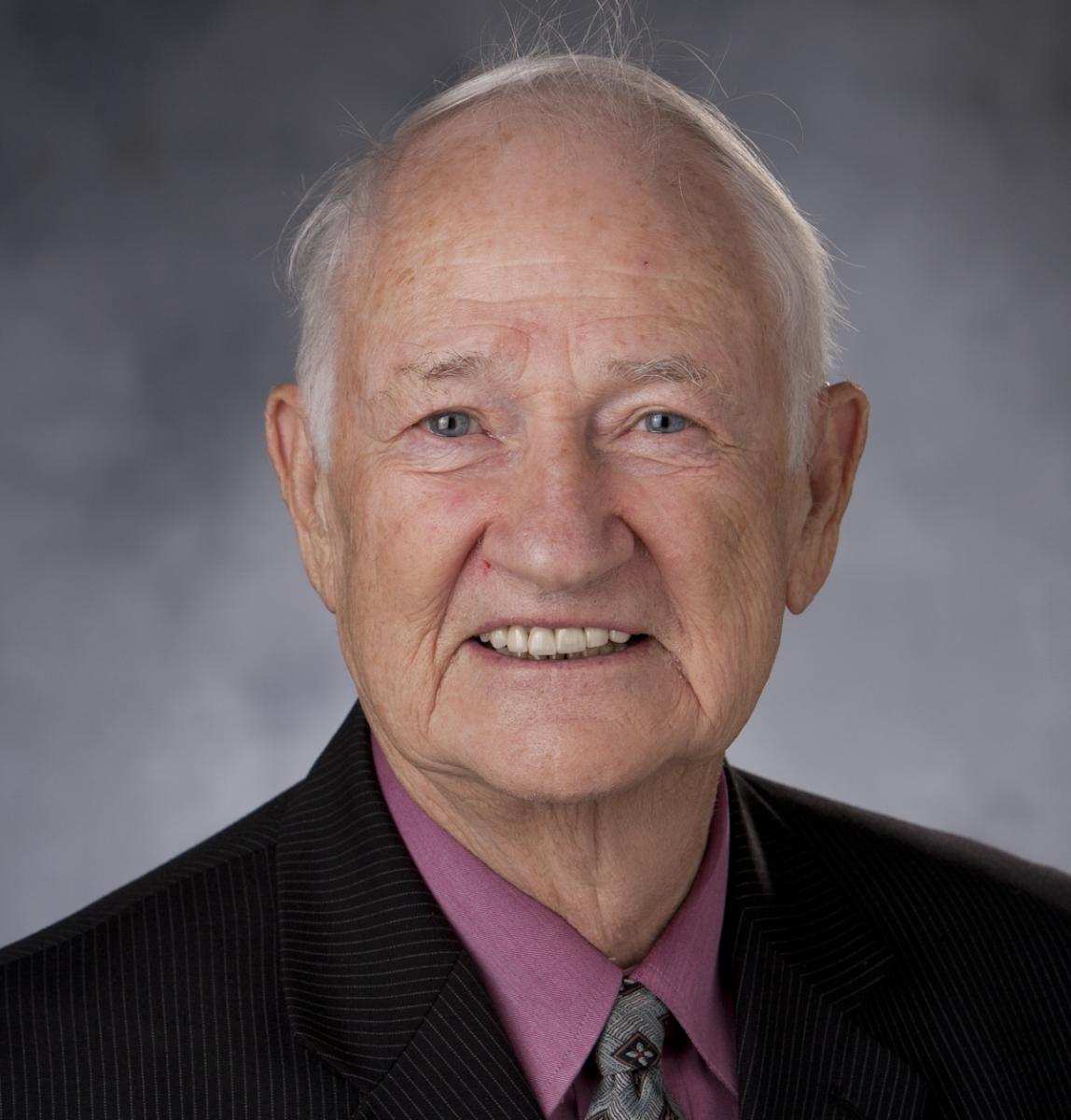eHI Annual Meeting
eHI hosted its Annual Meeting from January 26-28th. Five panels discussed lessons learned, industry best practices, and how we move toward a more modern, technology-enabled, and equitable health care system. Panels of experts explored topics related to social determinants of health, health data privacy, policy and advocacy, and modern health care delivery.
For full biographies of panelists, click here.
Links to all videos below.
eHI CEO Jen Covich Bordenick Interviews Senator Catherine Cortez Masto (D-NV)
eHI was thrilled to host Senator Catherine Cortez Masto (D-NV) for a conversation on healthcare, data privacy, and the importance of federal policy to ensure transparency to the consumer.
Panel #1: TGI2021: Where Are We Heading This Year:
eHI CEO Jen Covich Bordenick was joined by outgoing Board Chair Dr. Susan Turney, President & CEO of Marshfield Clinic Health System, and incoming Board Chair Amy McDonough, Senior Vice President & General Manager of Fitbit Health Solutions. They discussed expectations for 2021, as well as wearable technology and a discussion on equality in healthcare providers.
"While attitudes have thankfully changed dramatically, we have not arrived at a fully equitable society."
- Dr. Susan Turney
Panel #2: Prioritizing Equality in COVID-19 Vaccine Distribution
eHI's Director of Strategy and Programs Wanneh Dixon joined Damika Barr, JD from Verily Life Sciences, Anna Basevich from Arcadia, J. Michael McGinnis, MD, MA, MPP from the National Academy of Medicine, and Diana Zuskov from LexisNexis Risk Solutions for a discussion on how to engage underserved communities in COVID-19 vaccine distribution and using data-driven approaches to close gaps in health equity.
"I think the biggest takeaway is that there is a lot of data out there and I think we're getting to the point where everyone is convinced data is important, but making it actionable and connecting it down to one individual that you can look at an entire data story for."
- Diana Zuskov
Panel #3: Virtual Care Delivery During COVID-19 and Beyond
eHI CEO Jen Covich Bordenick joined experts Saurabha Bhatnagar, MD of United Healthcare, Adam Pellegrini of CVS Health, and Roy Schoenberg, MD of Amwell. Panelists discussed how their organizations have scaled virtual care delivery during COVID-19 and how they envision the future of health care post-COVID-19.
"For the next generation of telehealth that we want to be known for it has to be built differently to allow for innovation of others to collaborate inside the telehealth encounters or surrounding the telehealth encounters."
- Dr. Roy Schoenberg
Panel #4: Protecting “Health-ish” Data: Balancing Innovation and Health Data Privacy
eHI's Vice President and Senior Counsel Alice Leiter joined Jodi Daniel, Partner at Crowell & Moring; Laura Hoffman, Assistant Direction of Federal Affairs at the AMA; and Liz Salmi, Senior Strategist, Research Communication at OpenNotes and Senior Multimedia Communications Director at Beth Israel Deaconess Medical Center. Panelists talked about the challenging balance of shoring up legal protections for the increasing amounts of non-HIPAA-covered health data, establishing consumer trust in new technologies, and encouraging innovation in health care and health tech.
"[With respect to the digital Covid contact tracing apps]... There was a great idea, a great need to try to supplement traditional contact tracing for public health purposes with the outbreak of Covid with digital apps and smartphone apps that could use different types of functionality on your phone ...to alert folks when they were exposed to Covid. Unfortunately, we saw with a lot of the early rollouts of those apps that people didn't trust what would happen to the information they provided."
- Laura Hoffman
Upcoming Webinar: Release of the Final Consumer Privacy Framework for Health Data. We are delighted to release our final proposal to shore up protections for non-HIPAA-covered health information and share our plans for phase 2 of our work. Please join us and our colleagues from the Center for Democracy and Technology on February 9 at 2:00.
Panel #5: Digital Health Policy: Have We Reached a Turning Point?
The last panel of the Annual Meeting was moderated by eHI’s Assistant Vice President of Policy, Catherine Pugh. Catherine was joined by Aashima Gupta, Director, Global Healthcare Strategy and Solutions at Google Cloud; Matthew Roman, Chief Digital Strategy Officer at Duke University Health System; and Dr. Mona Siddiqui, Senior Vice President, Clinical Strategy & Quality at Humana for a discussion on the impact of COVID-19 on health policy, lessons learned, and how we move forward to build a more effective, efficient, and equitable health care system.
“I think digital should have a level playing field and I think there’s often been just a much higher bar to get some things approved than in-person care, so my hope is that people begin to see last year as a proof point of what’s possible and continue to enable greater access to care for people through technology and through digital solutions.”
- Dr. Mona Siddiqui
WEBINAR: The Next Wave: Automating Virtual Care
As the world adapts to the changes brought on in response to the coronavirus pandemic, it’s increasingly clear that virtual care is an essential component of modern care delivery. In response to the major pressures of care capacity and community safety, leading health organizations have adopted automated virtual care platforms to rapidly scale their care management capability. As we work to get the coronavirus pandemic under control, innovative leaders have also recognized the wide-ranging benefits of a richer, continuous and collaborative, care delivery process beyond addressing immediate needs brought on by the pandemic. The lasting impact delivered by virtual care at scale is coming into focus and helping inform how long term digital health initiatives benefit an organization in 2021 - and beyond.
In this topical session, we’ll explore a few ways in which market-leading healthcare provider organizations are leveraging the next wave of virtual care, how it informs their key long-term digital strategies and the positive outcomes that come with embracing automated virtual care at scale. Hear from national leaders in healthcare and technology as they discuss their journeys in expanding the use of automated virtual care to manage capacity challenges, deliver better patient experience, and improve population outcomes - all at a lower cost.
Speakers:
Jennifer Covich Bordenick
CEO, eHealth Initiative and Foundation
For over 20 years, Jennifer has focused on quality and innovative technology solutions to transform healthcare. As CEO, she provides leadership for research, education, and advocacy components of eHealth Initiative and Foundation (eHI). Convening senior executives from every group in healthcare to discuss, identify, and share best practices that transform the delivery of healthcare. Focus areas: improving health and wellness through innovative solutions; interoperability; privacy concerns; artificial intelligence; payment models to support innovative care; and tech tools for chronic care. She led development of dozens of national surveys and published groundbreaking reports. As part of her work with the Foundation, she led grants with California Health Care Foundation, Commonwealth Fund, Aetna Foundation and Bristol Meyers Squibb Foundation. Jennifer is co-chair of the Federal HIT Policy Committee’s Strategy and Innovation Workgroup; member of the HL7 Board of Directors; and a member of the Diabetes Collaborative Stakeholder Panel. Jennifer is a faculty member for the MHA and MHIA graduate programs at George Washington University. Prior to joining eHI, Jennifer headed up the strategic marketing at OpenNetworks, Inc., focusing on security solutions for the healthcare industry. She led healthcare industry relations at MicroStrategy, Inc., focusing on data-mining solutions for the pharmaceutical and healthcare industry. She spent four years at the National Committee for Quality Assurance as Director of Policy and Product Development, helping develop national quality standards for healthcare organizations. Jennifer began her career at the George Washington University Hospital, Medical Center and Health Plan working on quality management initiatives, clinical pathways and healthcare administration. Jennifer earned a master's in Human Resource Development, completed coursework in health administration doctoral program at GWU, and resides in Maryland with her husband and two children.

Murray Brozinsky
CEO
Conversa Health
Previously, Murray founded AVIH, an AI solution for primary care; co-founded and served as Chief Strategy Officer of Talix Inc. a risk adjustment SaaS company; and was Chief Strategy Officer of Healthline, a leading digital health education company for consumers, which he and the management team sold to Summit Partners in 2016. Prior to healthcare, Murray co-founded Loyalty Matrix (sold to Responsys/Oracle); Lypro Biosciences (sold to Cerenis Therapeutics); and Cambrian Technologies, his strategy and business development firm. Murray was President of Netcentives, a pioneer in digital loyalty and currency programs, which he helped take public. He started his career with stints at Boston Consulting Group and Morgan Stanley. Murray sits on the boards of First Call Ambulance Service and Adacado and is an advisor to Zignifica, Catelas, Aetho, UCSF Health Hub, and DeAnza High School Tech Academy.
Murray speaks and writes often about the future of healthcare. He recently gave keynotes at: Commonwealth Bank's Future of Health conference (2018 and 2017), Sydney; MUSC's Annual Healthcare Leadership Conference 2018, Charleston; The Healthcare Leaders Conference 2018, Dallas; Ogilvy’s HealthBot 2018 Summit, NYC; HealthXL’s Global Gathering 2018, London; the 2018 Academic Venturing Summit at JP Morgan, presented by Cleveland Clinic, San Francisco; and WBR Insights’ Healthcare 2020. He is interviewed frequently about digital health innovations, appearing in The New York Times, WSJ, Computerworld, Bankrate, Wired Magazine, and Health Innovation Media. Murray is also an award-winning playwright. His most recent play, Heavenly Bodies, won the 2017 Players Theatre Short Play Festival, NYC
Dr. Nick Patel
Chief Digital Officer, Prisma Health
Vice Chair for Innovation & Clinical Affairs, Dept. of Medicine, Adjunct Professor USC School of Engineering and Computing, Dept. of Integrated Computing
Practicing internist for the past sixteen years at Prisma Health, the largest, most comprehensive, non-profit hospital system in South Carolina. Currently serves as Chief Digital Officer at Prisma Health and Vice Chair for Innovation at USC Department of Medicine. Has given multiple presentations around the country on topics ranging from healthcare IT transformation, governance, workflow enhancements, health equity, telehealth, and population health. Subject matter expert for multiple Fortune 500 tech companies. Serves as a leader in defining and articulating a unique vision on the utilization and development of technology in healthcare. He currently serves on multiple Fortune 500 and University advisory boards. He also serves as Principal Investigator on multiple IRB approved IT studies in conjunction with USC and holds a clinical faculty position at the USC School of Medicine Department of Internal Medicine at USC School of Engineering and Computing. He is one of two physicians globally who have been awarded Microsoft's Most Valuable Professional Award and named Top 20 Chief Digital Officers to Know in 2020 by Becker's Hospital Review.

Dr. Aaron Neinstein
Associate Professor of Medicine, UCSF Endocrinology & Director of Clinical Informatics
UCSF Center for Digital Health Innovation
Aaron Neinstein, MD is Associate Professor of Medicine in the UCSF Divison of Endocrinology and Metabolism and Director of Clinical Informatics at the UCSF Center for Digital Health Innovation. He is board-certified in Internal Medicine, Endocrinology, and Clinical Informatics, with an active clinical practice focused on diabetes care. Dr. Neinstein, and inaugural inductee as a Fellow of the American Medical Informatics Association, has focused his career on empowering patients and physicians to better access, share, understand, and use health information for more connected collaborative care. He helped lead the Epic EHR implementation at UCSF and was on the founding team of Tidepool, a non-profit that creates open-source software to empower people with diabetes. At the UCSF CDHI, he leads a multi-disciplinary team focused on advancing interoperability and digital transformation of care delivery. Dr. Neinstein majored in American Studies at Northwestern University, graduated Alpha Omega Alpha from the Keck School of Medicine of USC, and did his Internal Medicine Residency and Endocrinology fellowship at UCSF.

Dr. Peter Pronovost, PhD
Chief Clinical Transformation Officer, University Hospitals
Dr. Peter Pronovost is a world-renowned patient safety champion, a practicing critical care physician, a prolific researcher, publishing over 800 peer-review publications, and a global thought leader, informing US and global health policy. His scientific work leveraging checklists to reduce catheter-related bloodstream infections has saved thousands of lives and earned him high-profile accolades, including being named one of the 100 most influential people in the world by Time Magazine, receiving a coveted MacArthur Foundation “genius grant” in 2008, and regularly recognized as one of the most influential executives and physician executives in healthcare. The life-saving intervention has been implemented state by state across the U.S. Today, these catheter infections that used to kill as many people as breast or prostate cancer, have been reduced by 80% compared to 1999 before the “To Err is Human” report was published. After demonstrating the ability to eliminate one harm in most health systems, Dr. Pronovost sought to eliminate all harms in one health system, Johns Hopkins. Toward that goal, Dr. Pronovost is the Johns Hopkins Medicine Senior Vice President for Patient Safety and Quality and the founder and director of the Johns Hopkins Medicine Armstrong Institute for Patient Safety and Quality. The Institute coordinates research, training, and operations for patient safety and quality across JHM, bringing together over 18 different disciplines from every school and division of the university. Drawing upon principles of high reliability, Dr. Pronovost created operating management system, integrating the governance, leadership, management, human resources, and data systems to improve safety and quality and to support learning and accountability. As a result, Johns Hopkins Medicine is significantly safer. Dr. Pronovost is working with several large health systems across the globe to implement this management system. Dr. Pronovost was elected to the National Academy of Medicine in 2011 and has received multiple honorary degrees. Dr. Pronovost is an advisor to the World Health Organizations’ World Alliance for Patient Safety and regularly addresses the U.S. Congress on patient safety issues. Dr. Pronovost regularly writes a column for the Wall Street Journal and US News and World Report. Dr. Pronovost is a founder of Doctella, a health information platform for quality of care. Dr. Pronvost serves as an advisor to HLM Venture Partners and as a senior advisor to Havencrest Healthcare Partners.
Webinar: Patient Identity and Data Matching
The COVID-19 pandemic highlighted underlying challenges in data matching and patient identity and, in many cases, slowed public health efforts to respond to and contain the spread of the virus.
eHI invited participation in a survey to assess industry views and opinions on the importance of data matching and patient identity in the response to COVID-19. This webinar analyzes our findings.
Speakers:
Jennifer Covich Bordenick
CEO, eHealth Initiative and Foundation
 For over 20 years, Jennifer has focused on quality and innovative technology solutions to transform healthcare. As CEO, she provides leadership for research, education, and advocacy components of eHealth Initiative and Foundation (eHI). Convening senior executives from every group in healthcare to discuss, identify, and share best practices that transform the delivery of healthcare. Focus areas: improving health and wellness through innovative solutions; interoperability; privacy concerns; artificial intelligence; payment models to support innovative care; and tech tools for chronic care. She led development of dozens of national surveys and published groundbreaking reports. As part of her work with the Foundation, she led grants with California Health Care Foundation, Commonwealth Fund, Aetna Foundation and Bristol Meyers Squibb Foundation. Jennifer is co-chair of the Federal HIT Policy Committee’s Strategy and Innovation Workgroup; member of the HL7 Board of Directors; and a member of the Diabetes Collaborative Stakeholder Panel. Jennifer is a faculty member for the MHA and MHIA graduate programs at George Washington University. Prior to joining eHI, Jennifer headed up the strategic marketing at OpenNetworks, Inc., focusing on security solutions for the healthcare industry. She led healthcare industry relations at MicroStrategy, Inc., focusing on data-mining solutions for the pharmaceutical and healthcare industry. She spent four years at the National Committee for Quality Assurance as Director of Policy and Product Development, helping develop national quality standards for healthcare organizations. Jennifer began her career at the George Washington University Hospital, Medical Center and Health Plan working on quality management initiatives, clinical pathways and healthcare administration. Jennifer earned a master's in Human Resource Development, completed coursework in health administration doctoral program at GWU, and resides in Maryland with her husband and two children.
For over 20 years, Jennifer has focused on quality and innovative technology solutions to transform healthcare. As CEO, she provides leadership for research, education, and advocacy components of eHealth Initiative and Foundation (eHI). Convening senior executives from every group in healthcare to discuss, identify, and share best practices that transform the delivery of healthcare. Focus areas: improving health and wellness through innovative solutions; interoperability; privacy concerns; artificial intelligence; payment models to support innovative care; and tech tools for chronic care. She led development of dozens of national surveys and published groundbreaking reports. As part of her work with the Foundation, she led grants with California Health Care Foundation, Commonwealth Fund, Aetna Foundation and Bristol Meyers Squibb Foundation. Jennifer is co-chair of the Federal HIT Policy Committee’s Strategy and Innovation Workgroup; member of the HL7 Board of Directors; and a member of the Diabetes Collaborative Stakeholder Panel. Jennifer is a faculty member for the MHA and MHIA graduate programs at George Washington University. Prior to joining eHI, Jennifer headed up the strategic marketing at OpenNetworks, Inc., focusing on security solutions for the healthcare industry. She led healthcare industry relations at MicroStrategy, Inc., focusing on data-mining solutions for the pharmaceutical and healthcare industry. She spent four years at the National Committee for Quality Assurance as Director of Policy and Product Development, helping develop national quality standards for healthcare organizations. Jennifer began her career at the George Washington University Hospital, Medical Center and Health Plan working on quality management initiatives, clinical pathways and healthcare administration. Jennifer earned a master's in Human Resource Development, completed coursework in health administration doctoral program at GWU, and resides in Maryland with her husband and two children.

Wanneh Dixon
Director, Strategy and Programs, eHealth Initiative and Foundation
Wanneh directs the social determinants of health (SDOH) and data analytics programs for eHealth Initiative and Foundation (eHI). Wanneh previously worked as the Corporate Engagement Manager for FHI 360, an international development firm focused on global health, education and economic empowerment. At FHI 360 she managed the private sector engagement strategy to cultivate relationships with corporations, foundations, donors and membership organizations. Her global health portfolio focused on maternal mortality, non-communicable diseases, and health systems strengthening. Wanneh holds a BSc in Information Technology from Herzing College and a M.A. in Global Development and Social Justice from St. John’s University. She lives in Maryland and serves on the Human Services Advisory Commission for the City of Rockville.

Mark LaRow
CEO, Verato
Mark is the Verato Chief Executive Officer. He was formerly at MicroStrategy, a BI software provider, for 14 years where he was the Executive Vice President of Products, responsible for product strategy, product marketing, and competitive intelligence. Prior to MicroStrategy, Mark was with Ernst & Young for 17 years and left as Partner responsible for all technical consulting in the east region of the US. Mark holds MS and BS degrees from MIT in electrical engineering and computer science. Outside the office, Mark enjoys woodworking and is an avid soccer fan, supporting FC Barcelona.

David Kates
Chief Technology Officer, Manifest MedEx
David leads the technology, security, and scalability programs for the Manifest MedEx network. Before MX, David has served in senior leadership roles at Wellpass, Inc (CTO), The Advisory Board Company, NaviNet, WebMD, Hx Technologies, and Cerner Corporation where he has led health information technology strategy, development, product management, and implementation activities.
David is an active contributor to government and industry HIT activities. He serves on the ONC Standards FACA Implementation Workgroup and previously served as co-chair for CCHIT and past board member of HL7 and represented The Advisory Board Company on the FHIR/Argonaut project. David received his bachelor’s and master’s degrees in electrical engineering and computer science from the Massachusetts Institute of Technology and his MBA from Duke University Fuqua School of Business.

William Hammond
Director, Duke Center for Health Informatics, Duke Translational Medicine Institute at Duke University
W. Ed Hammond, PhD, FACMI, FAIMBE, FIMIA, FHL7 has extensive experience in the design and implementation of electronic health records, starting in 1970. Dr. Hammond's academic and industry leadership include, past president of the American Medical Informatics Association (AMIA) and AMIA Board member, President and Fellow of the American College of Medical Informatics, three terms as Chair of Health Level Seven and HL7 committees, two terms as the Convenor of ISO Technical Committee 215, Working Group 2 and the current Ambassador to Developing Countries and the chair of the Joint Initiative Council of ISO/CEN/HL7. He was Chair of the Data Standards Working Group of the Connecting for Health Public-Private Consortium and serves on the Board of the eHealth Initiative. He also served as Chair of the Computer-based Patient Record Institute and on the CPRI Board. He was a Chair of ACM SIGBIO, is an advisor to the American Hospital Association on health data standards and related matters, and chair of the Steering Committee for the Rockefeller-sponsored Open Enterprise eHealth Architecture Framework Project.
Dr. Hammond served as a member of the Institute of Medicine Committee on Patient Safety Data Standards. He was a member of the National Library of Medicine Long Range Planning Committee and a member of the Healthcare Information Technology Advisory Panel of the Joint Commission on Accreditation of Healthcare Organizations. He has served on a number of NIH review committees, testified on a number of occasions for NCVHS, and has presented to several IOM committees. Dr. Hammond has served and is serving on a number of editorial boards and has published over 300 technical articles.
Webinar: Patient Matching to Combat COVID-19
The COVID-19 pandemic highlighted underlying challenges in data matching and patient identity and, in many cases, slowed public health efforts to respond to and contain the spread of the virus.
eHI invited participation in a survey to assess industry views and opinions on the importance of data matching and patient identity in the response to COVID-19. This webinar analyzes our findings.
Data Analytics Workgroup: Health Data Privacy & Unintended Consequences
eHI members are invited to join a Data Analytics Workgroup meeting at 2 p.m.. eHI will update its workgroup members on the feedback we have received on our Draft Consumer Privacy Framework for Health Data, a project undertaken in partnership with the Center for Democracy & Technology. Made possible with funding from the Robert Wood Johnson Foundation (RWJF), the Framework identifies and describes the current gaps in legal protection for health data outside of HIPAA’s coverage, as well as the standards and rules that should govern them.
Maverick Health Intelligence: Only What Matters on Health Information Policy (article)
The Federal Trade Commission (FTC) has at least one friend, and no, it is not Mark Zuckerberg -- her name is Alice. On a webinar to explain the eHealth Initiative and Center for Democracy & Technology’s Draft Consumer Privacy Framework for Health Data, eHI’s VP and Senior Counsel Alice Leiter announced that the new framework is an effort to “help out the FTC” so the agency is not overwhelmed by having to police every element of health data that is not regulated by HIPAA. The purpose is to propose a comprehensive consumer health data protection scheme, like GDPR or CCPA, and to complement or go further than other self-regulatory codes of conduct (CARIN Alliance, FTC Best Practices for Mobile Health App Developers, Network Advertising Initiative). The draft tries hard to define the ever-elusive concept of “consumer health data” and proposes specific protections and natural exceptions (i.e., research, to prevent death or injury). With Robert Wood Johnson Foundation funds, this was a serious effort with serious experts contributing serious time -- even the Better Business Bureau is being considered as a possible home for the new membership entity that vets, enrolls, and monitors its members. Maybe take a look at the draft and comment by September 25, 2020 -- just email FTC’s BFF at alice@ehidc.org. Alice may be the best friend the FTC has had in a long time.
Draft Guidelines Introduced to Protect Consumer Data on mHealth Platforms (mHealth Intelligence Article)
Draft Guidelines Introduced to Protect Consumer Data on mHealth Platforms
The Draft Consumer Privacy Framework for Health Data aims to set standards for the collection, use and protection of health data on smartwatches, fitness bands, mHealth apps and other consumer-facing technology.
CDT, eHI Unveil Draft Consumer Health Data Privacy Framework (Article, Health IT Security)
CDT, eHI Unveil Draft Consumer Health Data Privacy Framework
Drafted in collaboration with providers, tech giants, and advocacy groups, the consumer health data privacy framework provides standards for health data not protected by HIPAA regulations.
eHI and CDT Release Draft Consumer Privacy Framework for Health Data
Wednesday, August 26
For Immediate Release
Contact: Alice Leiter at alice@ehidc.org / eseeger@cdt.org
eHI and CDT Release Draft Consumer Privacy Framework for Health Data
Collaborative Group Proposes Self-Regulatory Model & Standards Focused on Non-HIPAA Health Data
Draft Consumer Privacy Framework for Health Data
August 26, 2020 – Today the eHealth Initiative & Foundation (eHI) and the Center for Democracy and Technology (CDT) released A Draft Consumer Privacy Framework for Health Data. The Framework includes a description of the health data that warrant protection, as well as the standards and rules that should govern them. The Framework also includes a self-regulatory model that would hold companies accountable to these standards and rules. The work is the first output of a collaborative effort addressing gaps in legal protections for consumer health data outside of the Health Insurance Portability and Accountability Act’s (HIPAA) coverage. The collaboration was funded through a grant by the Robert Wood Johnson Foundation.
The public is invited to review the draft framework and offer constructive feedback by Friday, September 25, 2020 in the form below.
